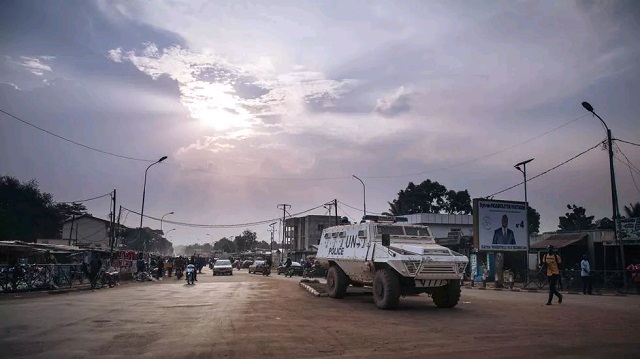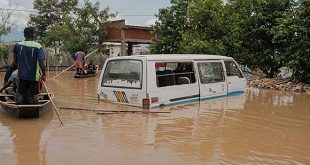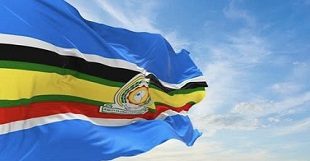
Bangui, CAR | Xinhua | Voters of the Central African Republic (CAR) are going to the polls on Sunday to elect a president and members of the National Assembly amid growing tensions.
Since last week, tensions have intensified across the country. A new coalition of armed groups has been created with the government speaking of an attempted coup. Meanwhile, the opposition has called for the postponement of the elections.
The voting scheduled for this Sunday thus becomes a real test of the achievements of peace consolidation in the country.
“ATTEMPT OF A COUP D’ETAT”
Last week, the government accused Francois Bozize, the former head of state whose presidential candidacy was invalidated, of an “attempted coup” with “clear intention to march with his men on Bangui”, the capital. Bozize’s party KNK denied the allegation, accusing the government of wanting to stigmatize his image.
The government declaration came after the creation of a new rebel alliance, the Coalition of Patriots for Change. This movement brings together the main armed groups with the objective of “the great inexorable march” towards Bangui, according to a statement by the Coalition.
Many observers see in the Coalition a strong link with Bozize, who before the movement was launched, met with rebel leaders after his candidacy was invalidated.
Since then, clashes between legal forces and the Coalition rebels have erupted in several towns across the country, including Dekoa (center-north), Bambari (center), Boali (west), Mbaiki (south-west) and Bakouma (south-east).
On Friday, the Coalition rebels killed three peacekeepers in their actions in Dekoa, breaking a “unilateral ceasefire” that the coalition announced on Wednesday.
According to local sources, the rebels from the northern city of Kaga-Bandoro towards Bangui were stopped in Dekoa by the joint forces of the peacekeepers of the UN mission (MINUSCA) and soldiers of the Central African Armed Forces. The refusal of passage degenerated into a confrontation.
DATE OF ELECTIONS MAINTAINED
During its decision on Saturday, the Central African Constitutional Court rejected en bloc all requests for the revision of the electoral calendar that were intended to postpone Sunday’s elections for reasons of insecurity.
These requests were introduced in particular by six presidential candidates including the former Prime Minister Anicet-Georges Dologuele, considered as the main competitor of the incumbent President Faustin-Archange Touadera who seeks another term of office, after the invalidation of the candidacy of Bozize.
In addition to members of the opposition, the Coalition also demands the suspension of the elections because “the conditions for a smooth running have never been met”, according to a statement by the Coalition.
For the head of MINUSCA, Mankeur Ndiaye, the postponement of the elections will open the door “to a transition which will lead the country into a new era of turbulence and instability with incalculable consequences”.
Election materials are being deployed across the country. Voter cards, in particular, are available throughout the national territory.
ELECTIONS DRAW GLOBAL CONCERNS
Last Saturday, UN Secretary-General Antonio Guterres condemned the escalation of violence in the CAR ahead of the elections. He called on all Central African actors to urgently end all hostility and to work together to ensure favorable conditions for the holding of elections.
The Central African people “have suffered for too long from conflict and instability,” said the UN chief.
On Monday, the Central African government announced a deployment of Rwandan and Russian reinforcements to help secure the electoral process, within the framework of bilateral cooperation. Rwanda and Russia have both sent “several hundred men” on the ground, affirmed the spokesman of the Central African government Ange Maxime Kazagui, without giving more details.
Russia said on Tuesday it had sent 300 additional military instructors instead of the regular forces. Rwanda confirmed to have sent soldiers to protect Rwandan peacekeepers.
On Wednesday, French President Emmanuel Macron talked over the phone with his Central African counterpart Faustin-Archange Touadera, and France also ordered fighter jets over the CAR to “mark France’s condemnation of the attempts at destabilization, the Elysee said.
On Thursday, 300 peacekeepers from the UN mission in South Sudan (UNMISS) also arrived in the Central African Republic to help MINUSCA, which has some 11,650 military personnel, to secure the elections.
******
Xinhua
 The Independent Uganda: You get the Truth we Pay the Price
The Independent Uganda: You get the Truth we Pay the Price


